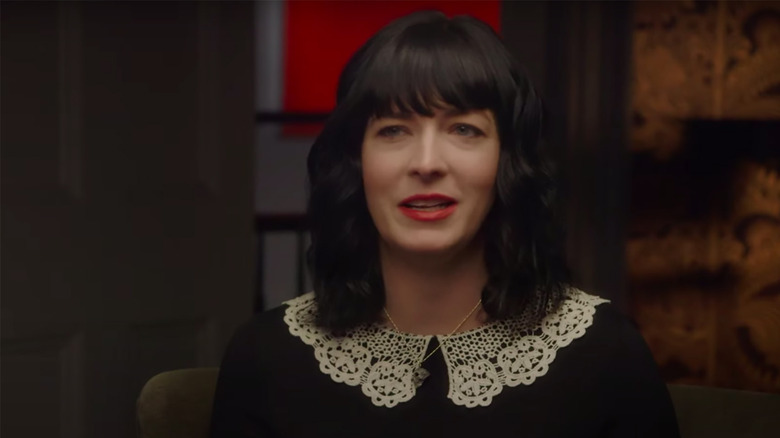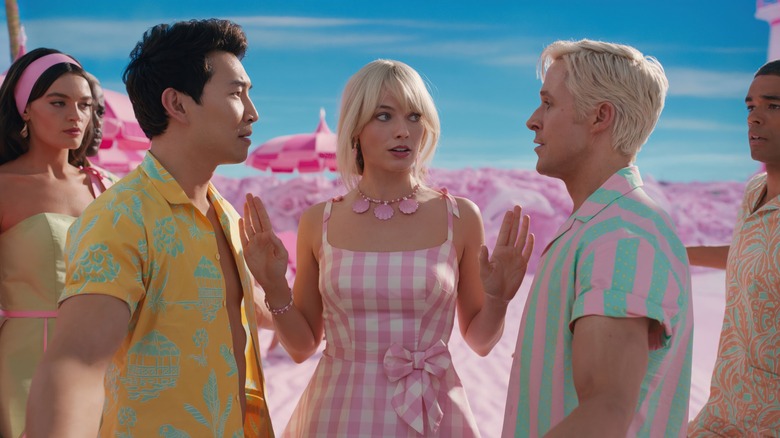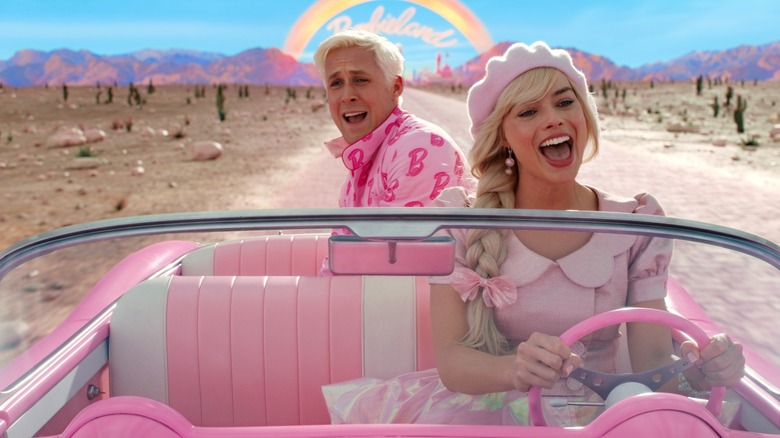Why Diablo Cody's Attempted Barbie Movie Never Got Off The Ground
Boasting over 60 years of history due to its instantly-recognizable global appeal, the word "Barbie" holds a lot of power in shaping innumerable childhoods and worldviews. Greta Gerwig's audacious, refreshing take on this beloved IP in her latest film, "Barbie" will certainly enhance the brand's legacy and what it means to diverse demographics, but there's a reason why we're only getting a "Barbie" live-action movie 64 years after its product launch. While Barbie is a cultural staple, it is no easy task to weave a cinematic vision around its complicated legacy — any filmmaker interested in taking on this challenge would have to keep their commentary both fun and nuanced, while adding their own unique spin to the discourse in keeping with the times. Where Gerwig has succeeded, others were not so lucky.
There were serious, dedicated attempts to make a "Barbie" live-action film as far back as 2009, when the brand's parent company, Mattel, signed a deal with Universal Pictures to capitalize on their IP. There were discussions about a film produced by Laurence Mark, but the project didn't take flight for various reasons, and in 2014, Sony Pictures stepped up to make the impossible happen. This is when the project fell in developmental hell, and writer Diablo Cody ("Juno," "Jennifer's Body") was brought in to rewrite the script while the search for the main lead continued.
After some time, in 2016, comedian Amy Schumer was cast as the lead in the film, but ended up walking away from the role after a few months, leading the whole project to quickly fall apart. While Cody's attempts at making this work were earnest, there's a reason why it never got off the ground.
Script rewrites and other obstacles
Before Cody was brought on to offer a clear direction to this particular Barbie movie, the project suffered from a lack of clear vision as multiple screenplays for the central idea existed, with little progress made. Cody's previous body of work speaks for itself — she had established herself as a fresh, intriguing voice as a writer with feminist leanings and a good understanding of gender politics in relation to societal perception. However, Cody gave up on the project without turning in a single draft, telling Screen Crush in 2018 (via GQ):
"I failed so hard at that project. [...] I was literally incapable of turning in a Barbie draft. God knows I tried."
Speaking to GQ recently, Cody explained the reasons why she thinks the project failed, stating that "the culture [at the time] had not embraced the femme or the bimbo as valid feminist archetypes yet." Cody also cited the recent reinvigoration of the Barbiecore subculture on sites like TikTok, saying the "celebra[tion] of the feminine" with regards to Barbie was not as commonplace in 2014 as it is right now, making attempts to launch a movie about the iconic doll "a tall order."
There was also some confusion regarding the actual creative direction of the film, with the central concept being the expulsion of Barbie from Barbieland for not meeting the expected ideals of perfection. Cody also told GQ that there "was a lot of pressure to not write the dramatic equivalent of 'math is hard,'" as the aim was to offer a take that diverged from the expected norm. While "unconventionality" was the keyword Cody wished to infuse into the project, these competent ideas failed to translate well into a workable script at the time.
Pulling off an 'Anti-Barbie' was tricky
The decision to cast Schumer as the titular doll might have produced interesting results, had the project managed to come to fruition. Schumer's work as a stand-up comedian meshed well with the idea of a Barbie who leaned slightly towards counterculture unconventionality, but Cody felt the idea only worked within a limited societal era and global mindset:
"That idea of an anti-Barbie made a lot of sense given the feminist rhetoric of 10 years ago. I didn't really have the freedom then to write something that was faithful to the iconography; they wanted a girl-boss feminist twist on Barbie, and I couldn't figure it out because that's not what Barbie is."
Keeping this statement in mind, it's easier to understand why Gerwig's take on the IP works so well, feeding into the widespread appeal of her film. Gerwig, like Cody, understands the complex history that Barbie carries as an IP and consciously incorporated these aspects to create an existentially exuberant narrative that is both faithful to Barbie iconography and subversive of these conventions. This duality allows Gerwig to venture into both worlds and provide nuanced commentary on the pitfalls of societal pressures to achieve a certain definition of "femininity," which can be both liberating and constricting when viewed through certain lenses.
In the end, all is not fantastic in Barbieland, and survival in the real world comes at a certain price, especially when you're a popular doll who has to constantly live up to myriad expectations. The path ahead is a rocky one, and Barbie has to figure out these existential issues all on her own. There's simply no other choice.


